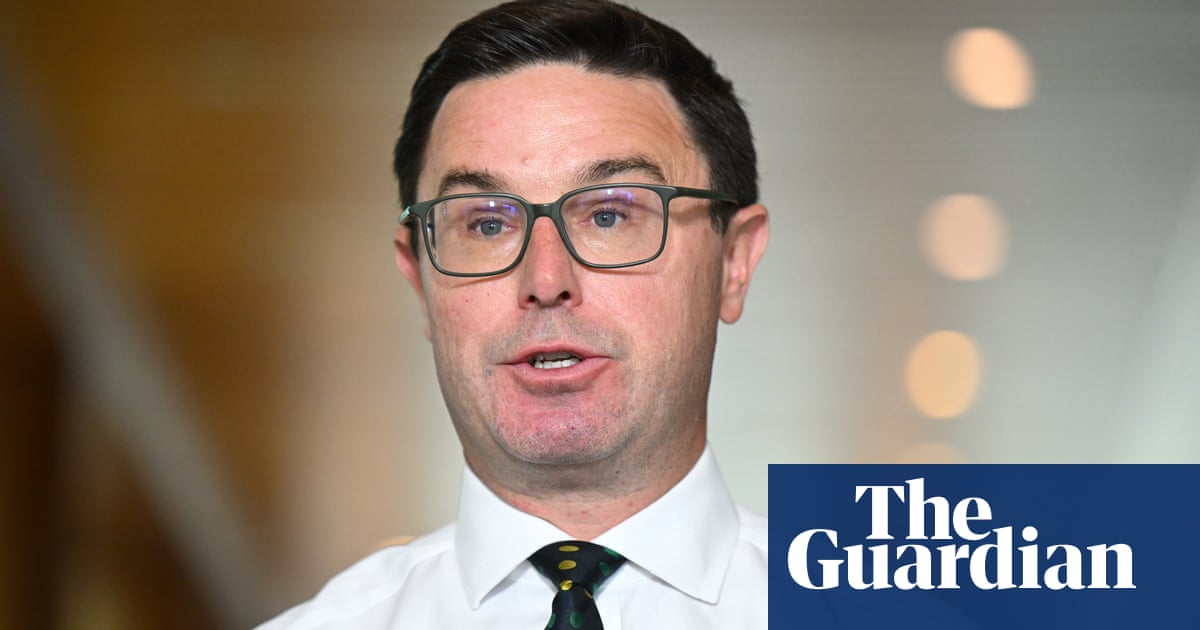David Littleproud has claimed Australia doesn’t need “large-scale industrial windfarms” like the planned offshore zone south of Sydney, adding the Coalition will “cap” federal government investment into renewable energy if elected.
The Nationals leader visited Wollongong on Monday, where he promised the opposition would instead offer a “calm” and “methodical” energy pathway to net zero by 2050.
Littleproud offered no details of the Coalition energy plan, only conceding “it will take a little longer to get there”.
The Albanese government on Saturday gave the green light to a 1,022 sq km area, 20-km off the Illawarra coast, in the next stage to become the country’s fourth dedicated windfarm zone.
While the development over the weekend was welcomed by a number of groups, some in the community have continued to oppose offshore windfarms due to potential environmental, economic and social impacts.
The Coalition is yet to detail its full energy plan, which will include a mix of nuclear, coal, gas and renewables. Littleproud said a Coalition government would result in “no windfarm” for the Illawarra.
“We want to send the investment signals that there is a cap on where [the Coalition] will go with renewables and where we will put them,” he said.
“The Coalition isn’t against renewables, but renewables should be in an environment they can’t destroy. Why don’t we give priority to where they can make a difference and give energy independence to businesses and households, which is on rooftops where the concentration of power and population is?”
Asked why the Nationals supported an offshore windfarm in Victoria’s Gippsland, but not in the Illawarra, Littleproud said: “They are fixed in Gippsland, this is floating.”
He said, unlike the Illawarra zone, few people lived near the Gippsland site, “and the transmission lines that are required aren’t as necessary”.
Earlier on Monday , Littleproud told ABC radio the Coalition’s energy policy will show investors Australia doesn’t need “large-scale industrial windfarms, whether they be offshore or onshore”.
“From what you’ll see in our energy mix, we won’t need large-scale industrial renewable projects. So that’s in essence where we’ll get to and be very clear and upfront and we are committed to that pathway. But it won’t be a linear pathway that you’re experiencing at the moment,” he said.
“It’d be one that’ll invest in the technology that’s zero emissions and it will take a little longer to get there.”
Guardian Australia has contacted the shadow energy minister, Ted O’Brien, and the member for Gippsland, Darren Chester, for comment.
The federal energy minister, Chris Bowen, defended the Illawarra’s windfarm announcement on Monday, saying three other areas around the country had also been marked as wind energy hubs.
“It’s very energy-rich, it’s very windy off our coast, and it’s windy constantly,” he said.
“Unlike onshore wind, which is windy some of the time and not some of the time, offshore wind is pretty much always windy. During the night, during the day, all the time.”
The Clean Energy Council’s chief executive, Kane Thornton, said his group were certain Illawarra residents would prefer “wind turbines that are 20 kilometres offshore, as opposed to a nuclear reactor on their doorstep”.
“It is disappointing that the Coalition has chosen to oppose sensible policy developments such as offshore wind and instead focus on stoking division in regional communities,” he said.
“This will undermine investor confidence in infrastructure projects right across Australia.”
In a statement to Guardian Australia, Littleproud clarified the Nationals are not against renewables but preferred “common sense and sensible options”, such as solar on rooftops.
“While the Gippsland project is smaller in size, the offshore wind farm in the Illawarra will still be 1,022 square kilometres and just 20 kilometres from the coast.”
Peter Dutton, the opposition leader, has said the Coalition is looking at six or seven nuclear power sites around the country but their locations will only be revealed “at a time of our choosing”.
Dutton has also backed away from Labor’s legislated 43% emissions reduction target by 2030 as part of Australia’s commitments to the 2050 net zero agreement, warning it would “harm Australian families and businesses in the interim”.

